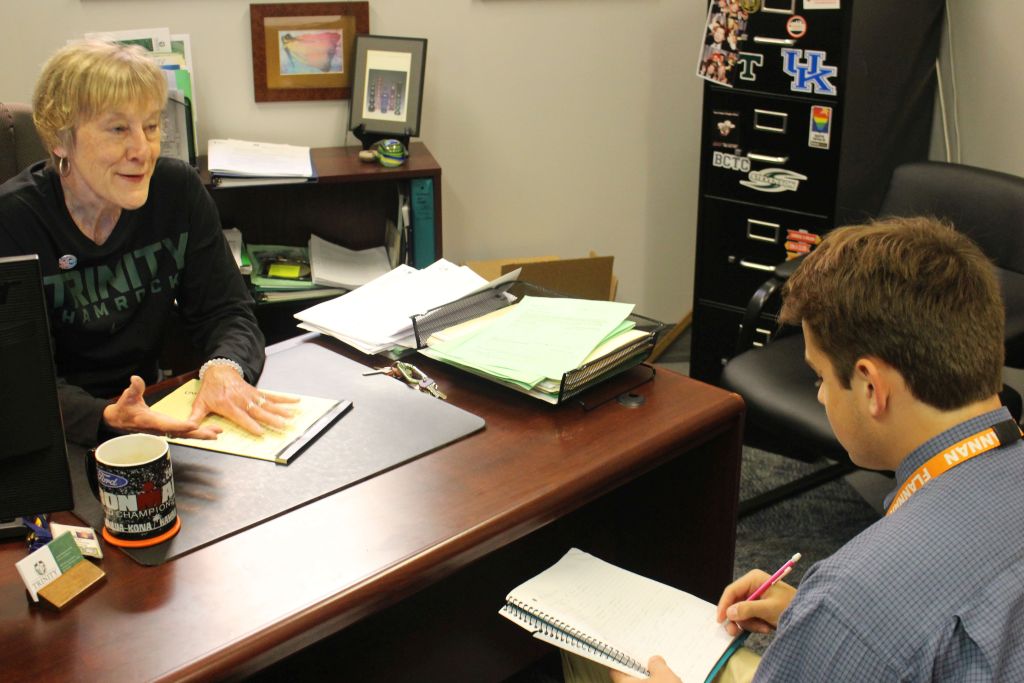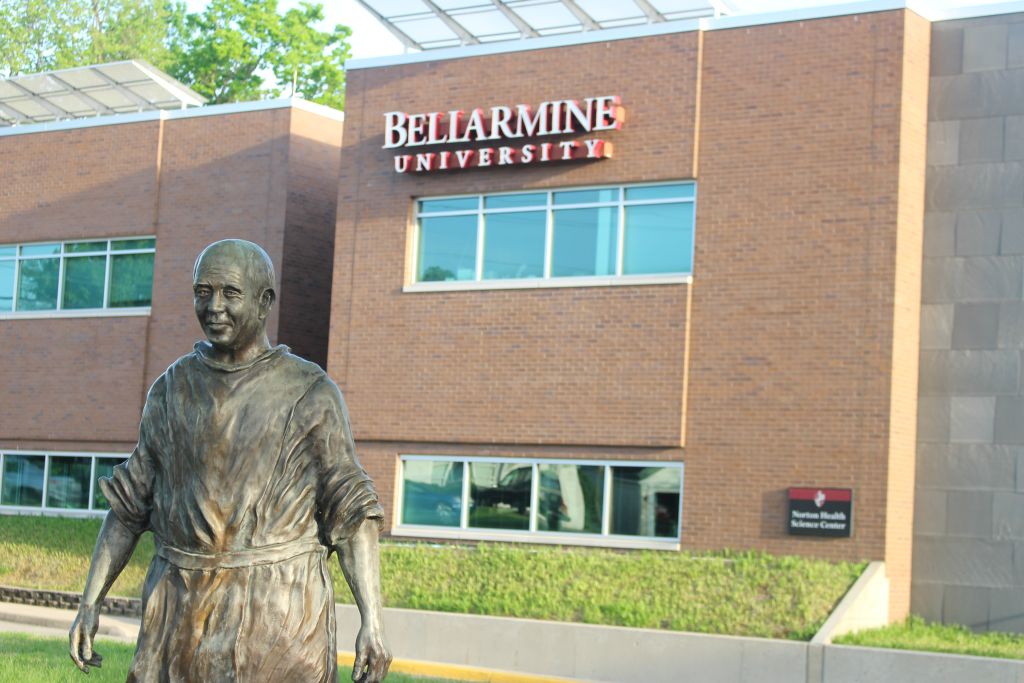Taking the Next Step — A Sure-Fire Formula for College Acceptance
Bellarmine University
June 29, 2017
According to the U.S. Bureau of Labor Statistics, 69.7 percent of 2016 high school graduates were enrolled in colleges or universities the following fall. This large number of teens seeking a college education means if you are planning to attend a college or university, you aren’t alone. There is an immense amount of competition to gain acceptance into the higher-level institution of your choice.
This may have you wondering how you will stand out to the college of your dreams. Following a few crucial guidelines will make a difference.
Start early! The old saying about the early bird is relevant in the college admissions process, especially in the aspects of building your college resume. Building your college resume takes very careful planning that should start at the beginning of your high school career.
Class of 2017 member Jacob Romines, who scored a perfect 36 on the ACT last year, said, “I didn’t think about (college) until late sophomore year, and I woke up and realized I really wanted to go to a standout college.”

Trinity college counselor Mrs. Sharon Bohannon
Romines regretted not getting into the process earlier. To freshmen, Romines advised, “(The college process) matters more than you realize; don’t let it stress you, though. You can relax and have fun. Just make sure to have a goal and keep it in mind.”
The four years of high school go by quickly, and it is important to make the most of crafting your resume. Mr. Tim Sturgeon, an admissions officer at Bellarmine University, said, “Earlier is better. The second semester, especially of the sophomore year, is good to begin the process of looking at your college options.”
Another key aspect in the college admissions process is turning in your application early your senior year. Trinity college counselor Mrs. Sharon Bohannon agreed that “an early application is the best way to show a college your interest in their school.” Organization and planning ahead can be a key factor.
The next big thing occurs day to day, getting the grades and the test scores. Anyone you ask will say getting good grades is important; however, according to Sturgeon, it’s also important to take strong classes. He said, “Quality courses and grades within those courses are really dynamic.”
Many students may think it is better to take a class in which it is easier to obtain an A rather than take a more challenging class. This isn’t the case, however. It is at times more impressive to have that more rigorous class on your resume, even if you have a B. This doesn’t mean, however, you should take classes that are unrealistic to your skill set and time schedule. It is important to put yourself in challenging, but reasonable classes.
A second major part of this day-to-day work is the test scores. Prepare to take the ACT and/or SAT, and do your best. Trinity works starting freshman year to get you ready for those tests. Get a feel of what you want your score to be and aim for it.
Make sure to improve your areas of weaker performance and keep trying until you obtain or come close to your ideal score.
Next, there is another important aspect of the college admissions process — and the most misunderstood one — extracurricular activities. When asked about college admissions, many would say colleges want “well-rounded” kids. This is true in a sense, but colleges look for more of a “story” that tells them about your character.
For example, they would rather see a few clubs that a student is truly involved in rather than lackluster participation in multiple clubs. Quality over quantity. Romines said, “It’s key to string (activities) into a cohesive narrative to show who you are. Don’t make yourself someone you’re not; being genuine is vital. Base your extracurriculars off your own personal interests; don’t stretch yourself thin on the things that aren’t you.”
A similar theme was expressed by Cooper Winrich, a rising senior at Trinity and speech and debate team member. He said, “Academic extracurricular clubs are the best opportunities when applying for college. I personally would encourage taking advantage of different opportunities to find your best attributes. Know what you love and work to be the best with no hesitation.”
Academic clubs are effective in building professional and college skills, all while providing a picture of one’s interests and work ethic; however, athletics can be just as decisive in showing a college you possess motivation.
Class of ’17 graduate Price Adams, who will study at Wabash Valley College in Illinois on a baseball scholarship, stressed the importance of athletics in helping in the college admissions process.
“It really helped having colleges approach me because of baseball, rather than me having to reach out to them,” Adams said. “Always having something to go for with baseball kept me motivated and gave me opportunities that I might not have gotten if I hadn’t played.”
Bohannon said to think about the value you can provide to the schools you are interested in. She said, “Keep in mind, sometimes your focus should be on what can you do for a college, not what they can do for you.”
Lastly, a larger than life word to keep in mind is leadership. This three-word statement expresses one of the most dynamic aspects of standing out to colleges. Leadership to colleges is a person who is self-motivated and diligent — and possesses integrity. Charitable character and leadership roles in clubs and in the community can truly be the cherry on top of a perfect college portfolio.



